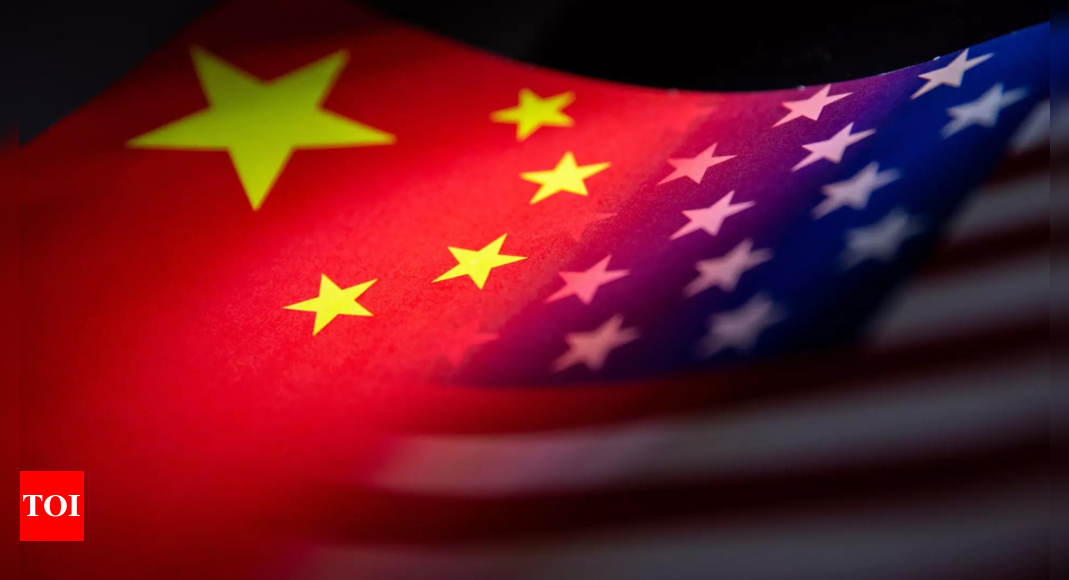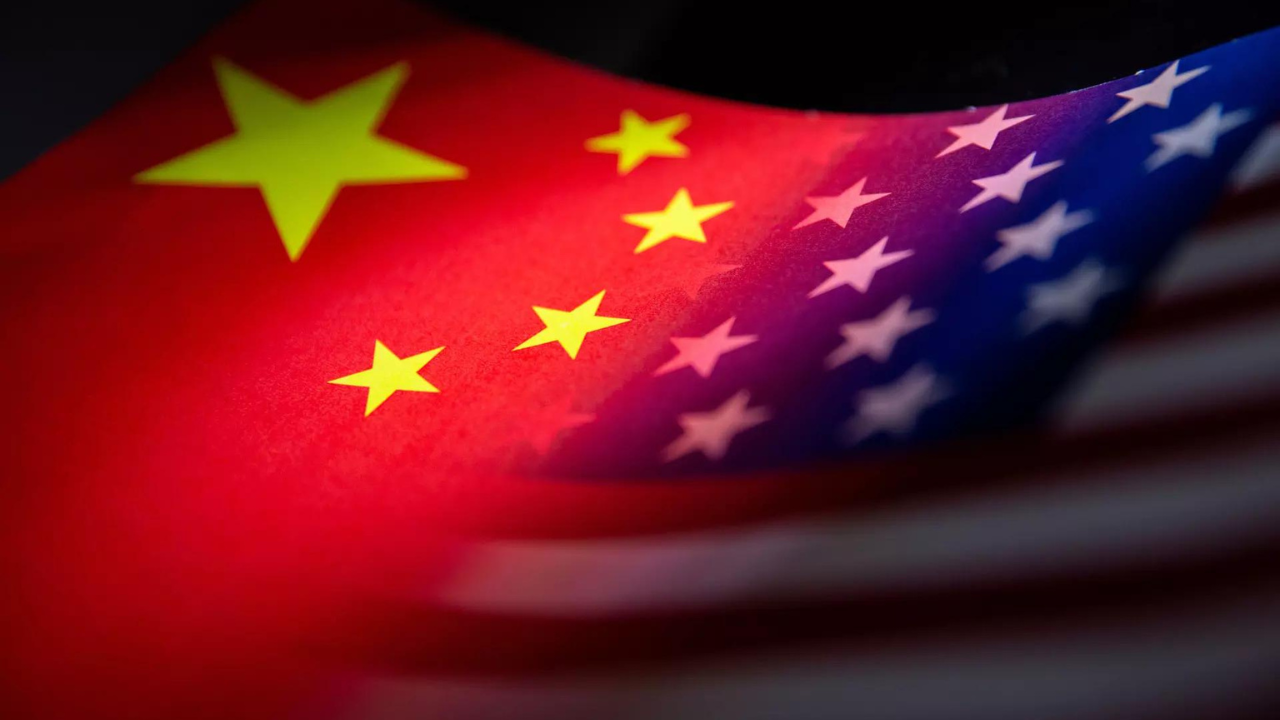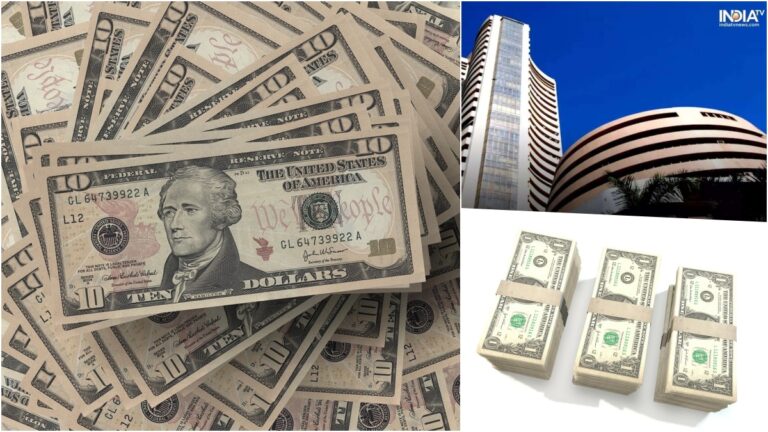[ad_1]
NEW DELHI: China has dethroned the US to turn out to be the highest alignment alternative for Southeast Asians as Washington loses floor on a variety of key points from regional financial engagement to the Israel-Hamas Conflictbased on a brand new survey,
A survey of 1,994 Southeast Asians by the ISEAS-Yusof Ishak Institute printed Tuesday exhibits China’s reputation in a head-to-head race with the US climbing from 38.9% final 12 months to 50.5% in 2024.Amongst particular person nations, Beijing garnered some three out of 4 votes in Muslim-majority Malaysia, Indonesia and Brunei.
“Confidence within the US has waned,” the survey states. “This may very well be attributed partly to the escalating rivalry between China and the US, which led to an uptick in nervousness concerning the US’ rising strategic and political affect.”
Southeast Asian nations have largely embraced the US as a obligatory safety presence because the Biden administration ramps up military-to-military cooperation in a bid to counter Beijing’s rising protection prowess. However the area additionally counts on China as a key monetary and buying and selling accomplice at a time regional leaders search new investments to bolster their very own economies.
A part of the problem for the US are considerations over financial engagement. Southeast Asians are “more and more not sure” concerning the effectiveness of the Indo-Pacific Financial Framework for Prosperity, a US-led endeavor to extend commerce that is been criticized for its lack of significant market entry.
China is as soon as once more seen as essentially the most influential financial and political-strategic energy within the area, “outpacing the US by important margins in each domains,” it says.
The newest ballot additionally places the Israel-Hamas battle on the high of the listing of the area’s geopolitical considerations, with a big proportion of respondents apprehensive “Israel’s assault on Gaza has gone too far.”
Almost a 3rd of respondents have been apprehensive that the Center East warfare would catalyze the rise of extremist actions, whereas diminished belief in worldwide legislation and a rules-based order was the second-top concern.
“The continued Israel-Hamas battle has emerged as a contentious problem in Southeast Asia, commanding important consideration within the area’s home politics,” the survey says. “Regardless of its geographical distance, the battle has reverberated strongly throughout this various multi-racial and multi-religious area.”
Whether or not these sentiments are accountable for the US’ drop in standing amongst regional nations is unclear, mentioned Bonnie Glaser, the top of the Indo-Pacific program on the German Marshall Fund. “With out extra knowledge it is inconceivable to reply that,” she mentioned throughout a presentation of the outcomes.
The US has diplomatically and militarily backed Israel in its quest to destroy Hamas, within the aftermath of the group’s October 7 assault.
Whereas sentiments have broadly shifted towards China, tensions within the South China Sea have been the second-biggest geopolitical concern within the newest research. In a hypothetical alternative between the US and China, Washington nonetheless instructions majority help from the Philippines at 83.3% and Vietnam at 79%, that are on the forefront of the territorial disputes with Beijing.
Broadly, “there’s a rising sense of optimism amongst Southeast Asians concerning their future relations with China,” the report states. “The Philippines emerged as essentially the most cautious.”
A survey of 1,994 Southeast Asians by the ISEAS-Yusof Ishak Institute printed Tuesday exhibits China’s reputation in a head-to-head race with the US climbing from 38.9% final 12 months to 50.5% in 2024.Amongst particular person nations, Beijing garnered some three out of 4 votes in Muslim-majority Malaysia, Indonesia and Brunei.
“Confidence within the US has waned,” the survey states. “This may very well be attributed partly to the escalating rivalry between China and the US, which led to an uptick in nervousness concerning the US’ rising strategic and political affect.”
Southeast Asian nations have largely embraced the US as a obligatory safety presence because the Biden administration ramps up military-to-military cooperation in a bid to counter Beijing’s rising protection prowess. However the area additionally counts on China as a key monetary and buying and selling accomplice at a time regional leaders search new investments to bolster their very own economies.
A part of the problem for the US are considerations over financial engagement. Southeast Asians are “more and more not sure” concerning the effectiveness of the Indo-Pacific Financial Framework for Prosperity, a US-led endeavor to extend commerce that is been criticized for its lack of significant market entry.
China is as soon as once more seen as essentially the most influential financial and political-strategic energy within the area, “outpacing the US by important margins in each domains,” it says.
The newest ballot additionally places the Israel-Hamas battle on the high of the listing of the area’s geopolitical considerations, with a big proportion of respondents apprehensive “Israel’s assault on Gaza has gone too far.”
Almost a 3rd of respondents have been apprehensive that the Center East warfare would catalyze the rise of extremist actions, whereas diminished belief in worldwide legislation and a rules-based order was the second-top concern.
“The continued Israel-Hamas battle has emerged as a contentious problem in Southeast Asia, commanding important consideration within the area’s home politics,” the survey says. “Regardless of its geographical distance, the battle has reverberated strongly throughout this various multi-racial and multi-religious area.”
Whether or not these sentiments are accountable for the US’ drop in standing amongst regional nations is unclear, mentioned Bonnie Glaser, the top of the Indo-Pacific program on the German Marshall Fund. “With out extra knowledge it is inconceivable to reply that,” she mentioned throughout a presentation of the outcomes.
The US has diplomatically and militarily backed Israel in its quest to destroy Hamas, within the aftermath of the group’s October 7 assault.
Whereas sentiments have broadly shifted towards China, tensions within the South China Sea have been the second-biggest geopolitical concern within the newest research. In a hypothetical alternative between the US and China, Washington nonetheless instructions majority help from the Philippines at 83.3% and Vietnam at 79%, that are on the forefront of the territorial disputes with Beijing.
Broadly, “there’s a rising sense of optimism amongst Southeast Asians concerning their future relations with China,” the report states. “The Philippines emerged as essentially the most cautious.”
[ad_2]
2024-04-02 05:58:55
[





















+ There are no comments
Add yours